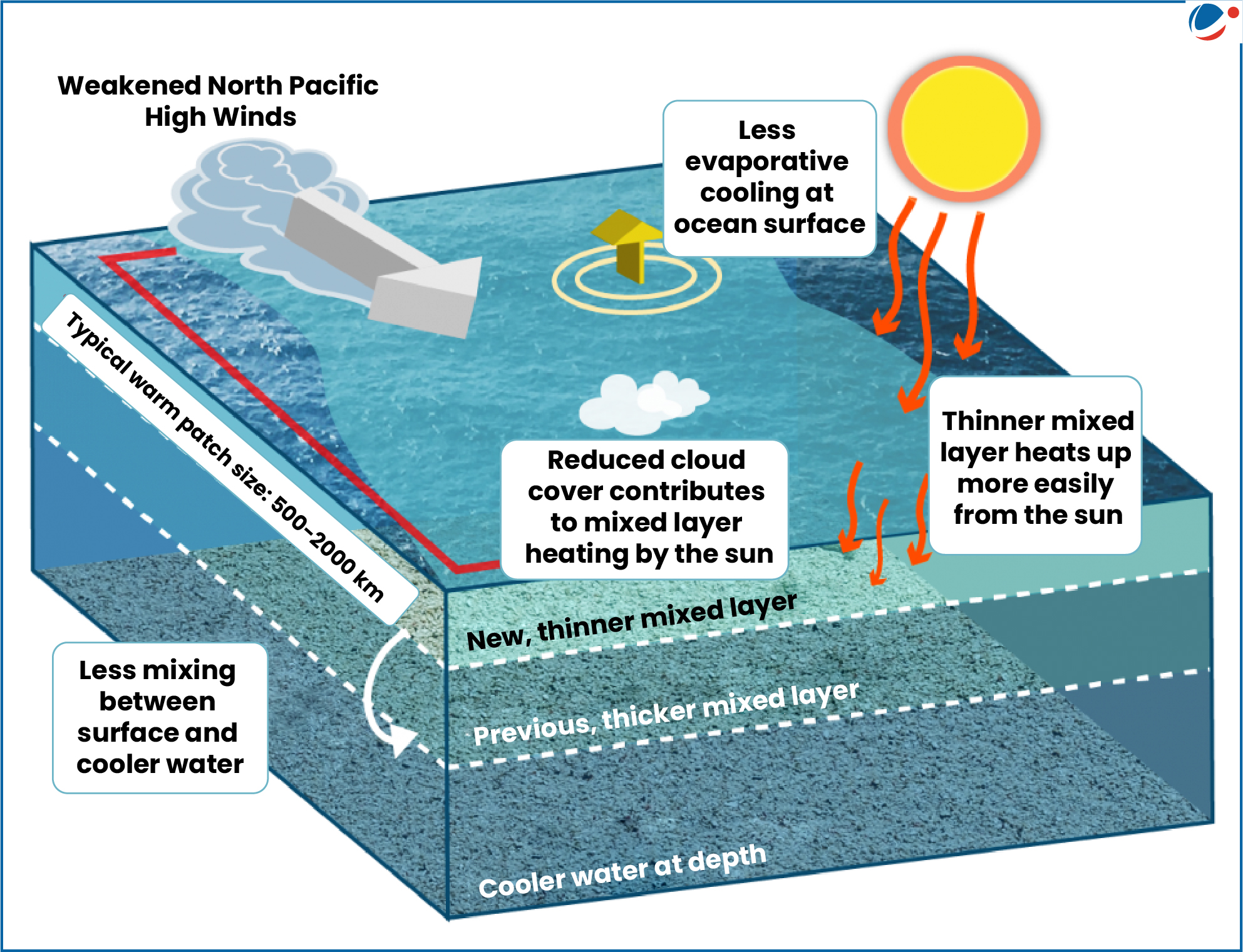A new study reveals the largest documented vertebrate die-off linked to warming oceans, showing rapid and intense climate impacts.
About Marine Heat Waves (MHWs)

- Definition: A marine heat wave is an extreme weather event. It occurs when the surface temperature of a particular region of the sea rises to 3 or 4 degrees Celsius above the average temperature for at least five days.
- MHWs can last for weeks, months or even years.
- Two Main Drivers of MHWs:
- Surface heat flux: Heating from the atmosphere, which tends to occur when an atmospheric high-pressure system sits above a region of water for an extended period.
- Surface heat flux tend to be shallower and shorter in duration
- Advection: movement of warmer waters into the region by ocean currents. It can be deeper and longer in duration
- Surface heat flux: Heating from the atmosphere, which tends to occur when an atmospheric high-pressure system sits above a region of water for an extended period.
Impacts of MHWs
- Ecosystem Disruption: MHWs cause mass mortality of habitat-forming species like kelps and corals, disrupting ecosystem productivity.
- Species Impact: Upper-trophic-level species face reduced reproductive success, increased mortality, and mass die-offs.
- Shifting Species: Native species migrate to cooler waters, while invasive species like sea urchins and jellyfish thrive.
- Toxic Blooms: Higher temperatures and deoxygenation can lead to toxic algal blooms.
- Extreme Weather: Marine heatwaves contribute to extreme weather events like tropical storms and hurricanes.
Key observations of MHWs
|






